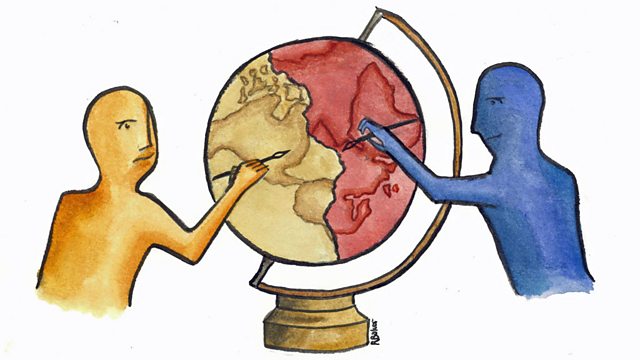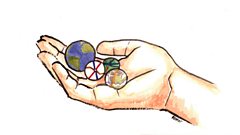Maps and Mapmaking
This week’s Forum looks at maps and mapmakers – how do they help us make sense of our world?
Every map has a story, and every mapmaker approaches their work with some kind of agenda. Carrie Gracie discusses where the urge to make maps comes from and what they mean to us; with American earth scientist Greg Asner, British historian of cartography Jerry Brotton and German-Greek map designer Aris Venetikidis. Illustration by Rosemary Baker.
Last on
Clip
-
![]()
Jerry Brotton on why we make maps
Duration: 00:47
Jerry Brotton

Aris Venetikidis

Aris is a German-Greek graphic designer with a passion for map design and public transport network visualisation. He is currently teaching at the Höhere Graphische Bundes-Lehr- und Versuchsanstalt in Vienna, but spent many years living in Dublin, Ireland where he designed an . Aris believes that, because of the way our brains process information, such maps should put simplicity before accuracy.
Greg Asner

60 second Idea to Change the World
Aris Venetikidis proposes that if you ever see anybody on the street, looking at a fold-out-map with a confused look in their face, you are legally required to ask them where they want to go and whether you can help them find it. As a local you can offer valuable information that’s not on the map, and even suggest it's not worth going to that place at all. People would start talking to one another on the street, and strangers would feel more welcome.
In Next Week’s Programme
Broadcasts
- Sat 15 Dec 2012 13:05GMT����ý World Service Online
- Sat 15 Dec 2012 23:05GMT����ý World Service Online
- Sun 16 Dec 2012 02:05GMT����ý World Service Online
Podcast
-
![]()
The Forum
The programme that explains the present by exploring the past



